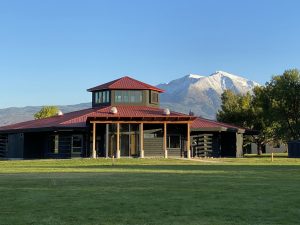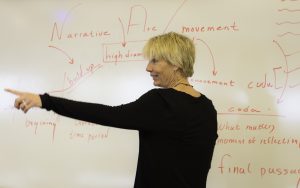LEGACY GIFTS
Commuted Payment Gift Annuity: FAQs
A commuted payment gift annuity is a form of deferred gift annuity. Instead of setting a fixed date in the future for the start of payments for the rest of your life, as you would with a deferred gift annuity, you select a set date to start payments but then all of the payments you would have received for life are "scrunched up" into a period of years.
 Do I need to choose the start date and number of years for my annuity payments now?Layer Closed
Do I need to choose the start date and number of years for my annuity payments now?Layer Closed
Yes. When you sign your commuted payment gift annuity contract, you have to decide when the payments will start and for how long you want them to last. The amount of your payment will be determined by the length of the deferral period and how long you want the payments. For example, if you defer payments for a long time and then spread out the payments over just a few years, then you will get some very high payments. But if you only defer payments for a year or two and then spread payments over 25 years, then the payments will be much less.
 How are my payments taxed?Layer Closed
How are my payments taxed?Layer Closed
Just as with deferred gift annuities, payments from commuted payment gift annuities are taxed based upon the assets used to fund the gift annuity. For example, if you fund a commuted payment gift annuity with cash, a portion of each payment is taxed at ordinary income tax rates and a portion is tax-free return of principal. However, when funded with appreciated stock, a portion of each payment is taxed as ordinary income, a portion as capital gain, and a portion is tax-free return of principal. We can help you to determine the taxation for your particular gift. Note that because you are spreading the capital gain over fewer years, a larger percentage of each payment may be taxed as capital gain if you use appreciated stock to fund your commuted payment gift annuity.
 What are the most common uses of a commuted payment gift annuity?Layer Closed
What are the most common uses of a commuted payment gift annuity?Layer Closed
A commuted payment gift annuity can be used for any purpose when you might want larger payments for a short period of time. They are most commonly used to help fund early retirement. Many individuals elect to retire prior to full retirement age for Social Security. The commuted payment gift annuity can make payments for the years from early retirement until full Social Security eligibility, then stop. Some individuals also use the commuted payments to help pay for college for grandchildren.
 Are commuted payment gift annuities hard to set up and maintain?Layer Closed
Are commuted payment gift annuities hard to set up and maintain?Layer Closed
A commuted payment gift annuity is a simple contract between you and Colorado Rocky Mountain School. Once the contract is executed, you do nothing until you start receiving payments. Each year, we issue a Form 1099 showing how the payments are taxed, which should be shared with your tax preparer. When the annuity ends, any amounts remaining are put to use for our charitable mission, as you have directed. Because it is payable for a term of years, you get to see the benefit of your philanthropy while you are living, which makes the commuted payment gift annuity unique among gift annuities, which otherwise are paid for life.
Please Note: Commuted payment gift annuities are not available to residents of New York and cannot be offered by New York-based charities.
Next
- More detail about Commuted Payment Gift Annuities.
- Contact us so we can assist you through every step.
Explore More Gift Options
Charitable Gift Annuity
Give a gift of cash or stock, receive income in return.
Deferred Gift Annuity
Younger donors can make a gift and lower taxable income.
Flexible Gift Annuity
More flexibility than a deferred payment gift annuity.
Commuted Payment Gift Annuity
Give cash or other assets, get fixed payments for life.
Pooled Income Fund
Offers variable income today, and an opportunity for growth.
Charitable Remainder Unitrust
Maximum flexibility over gift plan investment, benefits.
Charitable Remainder Annuity Trust
Flexibility to manage your gift; security of stable income.
Contact Us
Planning your estate and legacy for future generations, including your charitable interests, takes careful evaluation. Consulting with the appropriate professionals can assist you.
Mark Bell, Director of Development
mbell@crms.org
(970) 963-7220
The gift planning information presented on this site is intended as general. It is not to be considered tax, legal, or financial advice. Please consult your own personal advisors prior to any decision.
Read full disclaimer | Sitemap | Planned Giving Marketing Content © 2026 by PlannedGiving.com.
If you would like to begin a conversation regarding ways in which you can remember CRMS in your estate, please contact Mark Bell, Director of Development, at (970) 963-7220 or mbell@crms.org.
Towne Allen ’69
Carol Baily ’69
Ralph Beck ’73
Katharine Bradley Bennett ’67
Inez Black
Emily Bray ’75
Chris ’93 & Heidi Bromley
Chelsea Brundige
Barbara R. Buchanan ’65
Bonnie Holden Carter ’58
Sara Bunn Chesney ’77
Beach Clow ’77
Sherri Draper
Katherine Dumont*
William Dumont ’57*
Lee Ann Eustis – Honorary Alumna ’68*
Patricia Fender*
Michael ’63 & Jane Flax
Dutton & Carolyn Foster
Andrew G. Gould ’60
Katherine Gould-Martin ’61
Mary Whitford Graves ’60
Anne L. Gwathmey ’78
Lee Hall ’83
Beth Finder Harris ’60
Bradford Havice ’58
Erin N. Hayne ’95
Ted Hepp* ’61
Louis Jaffe ’64
Steve & Karen Lynn Keith
Karen Kidwell ’72
Amy Kilham ’69
James Koons ’72
Starr Lanphere* ’60
Jeffrey & Amanda Leahy
Lynn Bradley Leopold ’60
Margaret A. Lewis
Marian “Lolly” Lewis ’69
Mary Crouch Lilly*
Christopher W. Link* ’74
Ralph & Lynda Lipe
Sam & Pete Louras
Jay Marling '91
Sean McEvoy ’83
Suzi McKinley ’96
Beth Caldwell McNiff* ’63
Peter McWhinney ’78
Jan & Amos Melendez
Mary Wilmer Mills ’72
Loulie Molloy
William A. Moore* ’60 and
Lorna Grindlay Moore
Wick Moses* ’66
Sandra Mowry
James Nagel ’73
Virginia C. Newton
Malott Nyhart ’68
I.V. Pabst ’69
Katherine Paddon ’80
Bill ’61 & Becky Parzybok
Anthony Perry* ’55
Ilsa Perse ’66
Cynthia Yates Price ’72
Ramelle Cochrane Pulitzer ’68
Lisa Raleigh
Frank Reynolds ’87
Cory Hardie Ritchie ’92
Barbara O’Neil Ross
Rob ’58 and Aly Sayre
Colin Bunnell Schieck ’78
Susie Schlesinger ’68
John Schubert ’74
John Schweppe*
Jonathan Siegel ’71
Pat Stein Spitzmiller ’60
John Stickney ’57
Virginia E. Touhey ’74
Lynda Walters ’80
John T. Watson*
Stan Wattles '80, The Howard Bayne Fund
Tad Whitaker ’94
Ashley Whittaker ’89
Anonymous (2)
*indicates deceased
Please complete this confidential Holden Circle membership form and return it to development@crms.org.
Cash Bequest to Colorado Rocky Mountain School
A cash bequest provides Colorado Rocky Mountain School with a specified sum of money from a donor’s estate. These bequests are fulfilled second, after specific and before residuary bequests.
“I give _____ Dollars ($_____) to Colorado Rocky Mountain School, a Colorado non-profit corporation (tax ID Number: #84-0425174), 500 Holden Way, Carbondale, Colorado 81623 to further the objectives and purposes of Colorado Rocky Mountain School.”
Residuary Bequest to Colorado Rocky Mountain School
A residuary bequest is made from the residue, or what remains in a donor’s estate after specific and cash bequests, taxes, settlement costs and debts are satisfied. This type of bequest is sensitive to changes in the size of the estate over time.
“I give the residue (or _____ percent of the residue) of my estate to Colorado Rocky Mountain School, a Colorado non-profit corporation (tax ID Number: #84-0425174), 500 Holden Way, Carbondale, Colorado 81623, to further the objectives and purposes of Colorado Rocky Mountain School.”
Specific Bequest to Colorado Rocky Mountain School
A specific bequest gives a specific item or specific piece of property to Colorado Rocky Mountain School. Such bequests are fulfilled first, before cash and residuary bequests. If the donor disposes of the specified property during his or her lifetime, there will be no bequest to Colorado Rocky Mountain School.
“I give ________________ (describe asset) to Colorado Rocky Mountain School, a Colorado non-profit corporation (tax ID Number: #84-0425174), 500 Holden Way, Carbondale, Colorado 81623 to further the objectives and purposes of Colorado Rocky Mountain School.”
- If you are considering naming CRMS as a beneficiary in your estate plan, please work with your attorney or estate planner to structure your estate and write your will so as to best carry out your wishes.
- You might find these resources helpful: Personal Estate Planning Kit - Lesson Book · Record Book
- These videos provide general information about estate planning and planned giving.
 MYCRMS
MYCRMS





 Virtual Tour
Virtual Tour